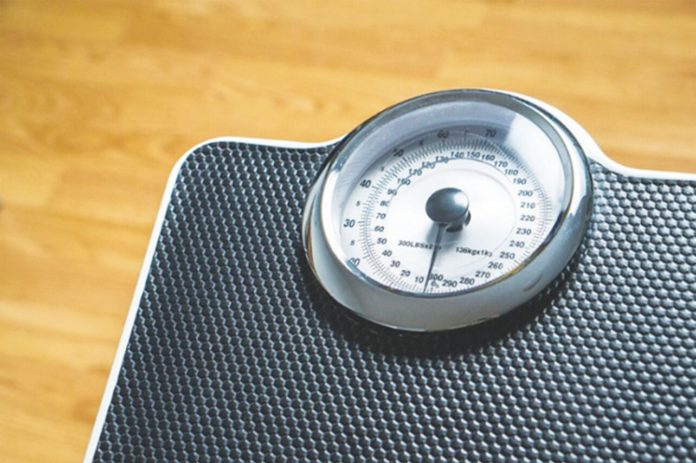You started a diet. You’re doing great! You’re eating all of the right foods, controlling your portions, and even fitting exercise into your schedule. The number on the scale keeps dropping and dropping. You’re down two dress sizes. You’re so proud of your success. But then, all of a sudden, the number on the scale seems to stagnate. You shake the scale, check the batteries, but it’s no use. Week after week, that number stays the same. You continue dieting, eating all of the same healthy foods, and continue with your exercise regimen, yet the number doesn’t budge. You have reached what is called a weight loss plateau. I hear this saga all too often. As frustrating as it is, it’s inevitable, and here’s why.
According to 2014 research published in The American Journal of Clinical Nutrition, everyone should expect to hit a weight-loss plateau about six months into their weight-loss journeys. Dr. Alexandra Sowa, a New York City-based internal medicine physician and diplomat of the American Board of Obesity Medicine, explains, “It’s so important to expect to hit a plateau at some point. If you don’t, it can be easy to get frustrated, give up on healthy lifestyle changes and regain all of the lost weight.” So don’t worry, and don’t feel let down. It’s bound to happen.
What happens as you lose weight is your body learns to adapt to the weight loss. Once you lose weight, your metabolism drops too. In order to keep losing, once you plateau, you’ll have to eat less and less calories. Dr. Sowa says, “For every 10 percent of your body weight you lose, you need to consume roughly 20 percent fewer calories to continue losing weight.” However, I do not advise going under 1,200 calories/day without medical supervision. The average woman needs 1,400 calories to maintain weight loss, and men need 1,600-1,800 calories/day.
Similarly, your body has what is called the set point theory. This means that your body is used to a certain weight. If you start to gain weight, your body will utilize more calories and send out more of the hormone leptin to make you eat less and burn calories in hopes of getting you back to your original weight. That part works to our benefit. Unfortunately, it works the other way around too. If you lose weight, your body wants to get you back to where you were. It starts to conserve energy and sends out the hunger hormone, ghrelin, to convince you to take in more calories. This reaction causes you to gain weight to get you back to your original weight or causes the plateau. A weight loss plateau may be your body reacting to a new set point. Again, in order to overcome this plateau, try to slowly cut calories to continue weight loss, but do not go under 1,200.
Another explanation for a weight loss plateau is that you are getting fitter. Your body is simply getting used to your exercise regimen. When you first started working out the exercise seemed impossible and you really worked up a sweat doing the basics. As you progressed to higher levels of vigorous exercise and for longer periods of time, your body started adapting. You no longer require the same energy to do the basic exercise that you started out doing. As your body becomes more efficient, you burn fewer calories during each workout, which explains the stagnant number on the scale. In order to overcome this, change your course of exercise so that you are constantly challenged. Personal trainer Mike Donavanik, a Southern California certified strength and conditioning specialist, says, “A simple solution is the FITT principle. Every three to four weeks, change up your exercise frequency, intensity, time, or type of exercise.”
When you hit the plateau, don’t despair. You haven’t done anything wrong. It’s bound to happen even when you are doing everything right. However, as mentioned above, there are some ways to get around it. Don’t beat yourself up. As long as you are eating healthy and exercising regularly, your body must be in great shape. Being healthy is key. Whatever weight loss you achieved thus far is a great success. Don’t push yourself to exercise too hard if your body cannot handle it, and again do not eat less than 1,200 calories per day without medical supervision. This will do your body more harm than good.
As long as you are maintaining your weight, and not gaining, you’re doing the right thing! Even if you are no longer losing, you are still a winner!
Cindy Weinberger MS, RD, CDN, is a Master’s level Registered Dietitian and Certified Dietitian-Nutritionist. She graduated CUNY Brooklyn College receiving a Bachelor’s in Science and Master’s degree in Nutrition and Food Sciences. She is currently a dietitian at Boro Park Center and a private nutrition consultant. She can be reached at [email protected].







